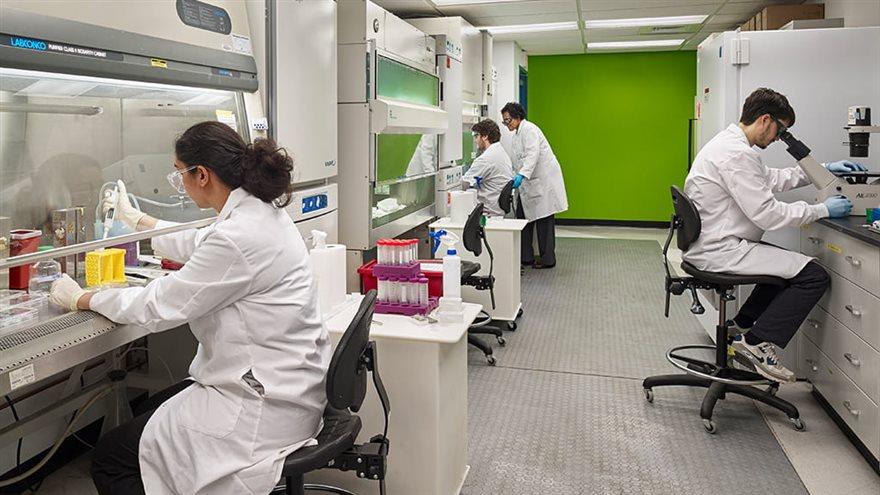Five Little-Known Facts: Drexel University Counseling Center

This article is the first in a new DrexelNow “Five Little-Known Facts” series aimed at bringing Drexel students new information and breaking down misconceptions about a variety of departmental resources on campus.
Annette Molyneux, PhD, assistant vice president for Student Life and director of counseling and health services at Drexel University, can pinpoint several arguments for why anxiety and depression have become more prevalent among today’s college students.
“The world is a crazy place,” she said, citing this as one of the many reasons students may feel a loss of control over their lives. “It’s a scary kind of world that students are entering into once they graduate from school. There’s so much uncertainty, there are mass shootings. … It just seems like there is more chaos out there that people have to try to assimilate. That’s not an easy thing to do. It makes you feel very unsettled.”
When you keep this and many other modern factors in mind, it’s not surprising to hear that students are entering school with more prevalent and severe mental health concerns, both here at Drexel and on a national scale. For Molyneux, who has been director of Drexel’s Counseling Center for over 20 years, this means that what she and her colleagues come across day-in and day-out is much more like what she saw when she previously worked in private practice.
Thankfully, the Counseling Center is equipped to help students through a variety of mental health concerns, and its capabilities are continuing to grow. Among many other misconceptions students might have about seeking mental health help, one is very clear from the statistics — your feelings are valid, and you are not alone.
“That’s the stigma about getting help: ‘There must be something terribly wrong with me if I have to go to the counseling center,’” Molyneux said. “No, that’s not true. We have people who come in here for all sorts of concerns: breakups, relationship problems, family problems or issues about, ‘What do I do from here? Where do I go now?’ They can just come in and talk to somebody who doesn’t have their own personal agenda for what you do next.”
Here are five more potential myths about Drexel’s Counseling Center which Molyneux would love to see debunked:
I’ll have to wait to see a counselor.
Molyneux said her staff knows one thing she’s really intent on: not having a waiting list.
“I didn’t want anyone to be left in the queue,” she said.
In the past, due to staffing at the office, there have been times when students have had to wait to be seen.
“That was just unacceptable,” Molyneux said. “We’ve modified how we do business in order to accommodate the flow.”
To ensure students won’t have to wait any time in the future, Molyneux noted that President John Fry has also given the office four additional staff positions, some of which Molyneux is already well into the process of filling. She said this exemplifies the administration’s concern about the mental health needs of Drexel students — a concern also held by many others on campus.
“We have a great administration,” Molyneux said. “They’re very supportive and intent on making sure we have what we need in order to do what we need to do for our students.”
I’ll have to speak one-on-one with a counselor
Part of the way the office is keeping up with the flow of students is by offering more than just one-on-one counseling. Molyneux said they have developed a strong group program which is helpful for many reasons.
“There are support groups for students to talk with other students to understand they’re not the only ones who are going through what they’re going through,” she said. “It normalizes. It makes people feel better to know, ‘I’m not the only one.’”
Current group therapy offerings focus on everything from women’s trauma and recovery and general understanding self and others, to addressing specific issues among graduate student populations. In addition to group therapy, the office also offers skill-based groups and workshops geared toward identifying, understanding and managing challenges such as anxiety, mood management and self-compassion.
I should only see a counselor for something academically related
When students feel the pressure of the fast-paced academic environment at Drexel, Molyneux hopes that a visit to the counseling center can help them slow down for a minute.
“It’s a place where they can talk and think through their doubts, their concerns, their issues,” she said. “We confirm and validate what they’re experiencing and that’s helpful.”
But even though it’s the University’s Counseling Center, that doesn’t mean the concerns brought by students have to be academic. Molyneux urged that the Counseling Center is there to serve students who are dealing with of all types of emotional, psychological and mental health issues. Even if they ultimately have to move students in a different direction for help —their advisor, off-campus psychological resources, etc. — someone at the Counseling Center will always be there to listen.
“Whatever it is that you’re dealing with, come and talk about it,” Molyneux said. “If you think you can only come for academic, well then come and let’s see. … It’s unfortunate if students don’t know that we’re here to help them.”
I’ll have to pay for my visit
Counseling Center services are free-of-charge for all students — simple as that.
“The University understands that providing quality care to students who need our support is very important and that there should not be a cost barrier to receiving that care,” Molyneux said.
There are situations where students either request or require specialized care that the center does not provide. To support those students the Counseling Center’s case manager is available to meet with students, teach them how to navigate their health insurance coverage and assist them in finding appropriate referrals off campus.
People will find out if I seek help
“We are a confidential service. We don’t call mom. We don’t tell anybody you’re here unless you give us permission to do that,” Molyneux said of the rampantly held myth that the University Counseling Center may notify people if a student comes in seeking services.
In fact, students must sign a form indicating to whom and what information can be released before the Counseling Center can relinquishes any information to anyone outside of the center. The only exception to this is when a student is at imminent risk of harm to self or others.
“In that case we are required to do whatever is necessary to insure the student’s safety,” Molyneux said.
Students also hold the incorrect belief that their use of the Counseling Center will be recorded somewhere and could interfere with their academic goals or securing a co-op. False!
“Contact with the Counseling Center is kept private,” Molyneux said. “Our record-keeping system is secure, HIPPA compliant and maintained separately.”
This Mental Health Awareness Month, consider making an appointment with the Counseling Center or sharing this information with classmates. For more information about what the Counseling Center offers or how to make an appointment, visit drexel.edu/counselingandhealth/counseling-center.
In This Article
Drexel News is produced by
University Marketing and Communications.

